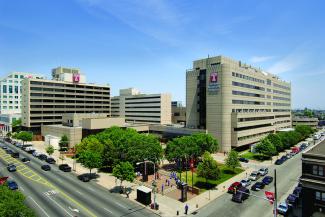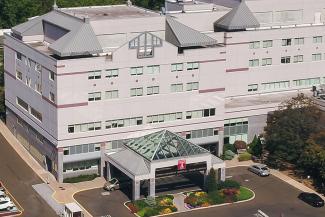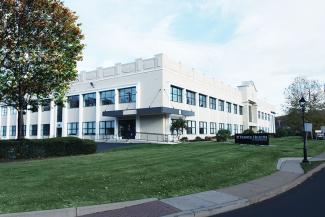Temple’s Cardiac Sarcoidosis Program focuses on controlling symptoms and curtailing damage to the heart from this rare condition. Calling on extensive experience with the effects of sarcoidosis, our specialists develop detailed, individualized plans to minimize the cardiovascular effects associated with sarcoidosis and help patients avoid serious complications.
Diagnosis
Sarcoidosis, a disease that leads to inflammation and clustering of immune system cells in various organs of the body, has no known cause. These immune cell clusters, or granulomas, most commonly form in the lungs, skin, and/or lymph nodes. It’s much rarer for them to occur in the heart; but when they do, inflammation may damage or disrupt the function of the heart’s arteries, valves, muscle, or electrical system.
Cardiac sarcoidosis can be difficult to diagnose, especially if the patient does not have sarcoidosis in other organs. The symptoms vary and often mimic those associated with other diseases. Temple’s state-of-the-art facility is well-equipped with advanced diagnostic tools, including leading-edge cardiac imaging.
Reducing Risk & Slowing Down the Disease
Sarcoidosis can’t currently be cured, but it can be managed to prevent other problems, such as heart failure, from developing over time. Treatment is directed at reducing inflammation and managing any heart problems caused by inflammation and granulomas. This often involves a regimen of anti-inflammatory drugs and lifestyle changes, and, in some circumstances, may also mean other steps like the implantation of a pacemaker.
A Collaborative Approach to Care
The cardiac sarcoidosis team includes specialists in the following areas:
- Heart Failure Specialists
- Electrophysiologists
- General Cardiologists
- Interventional Cardiologists
- Cardiovascular Imaging Specialists
- Cardiovascular Surgeons


